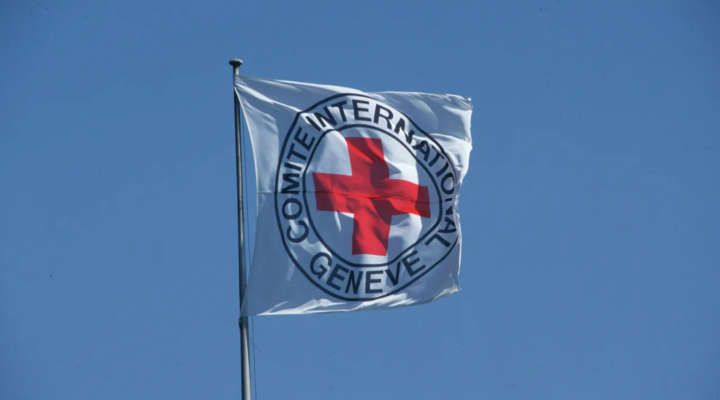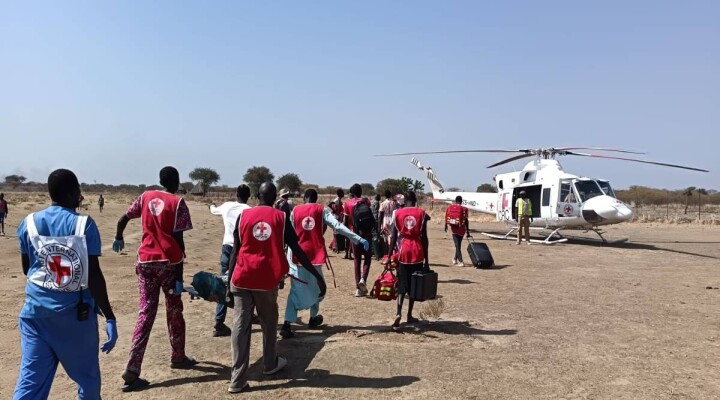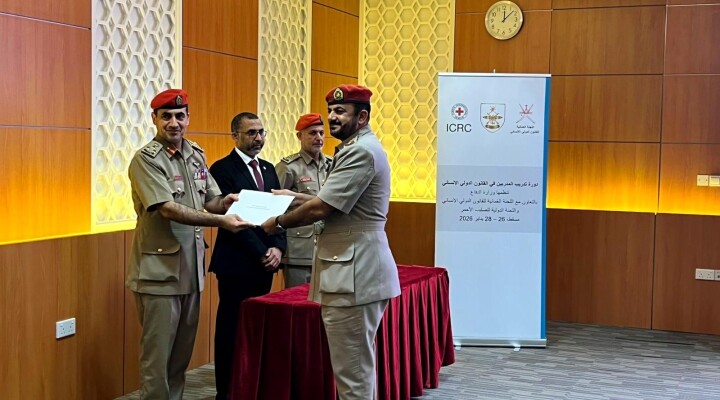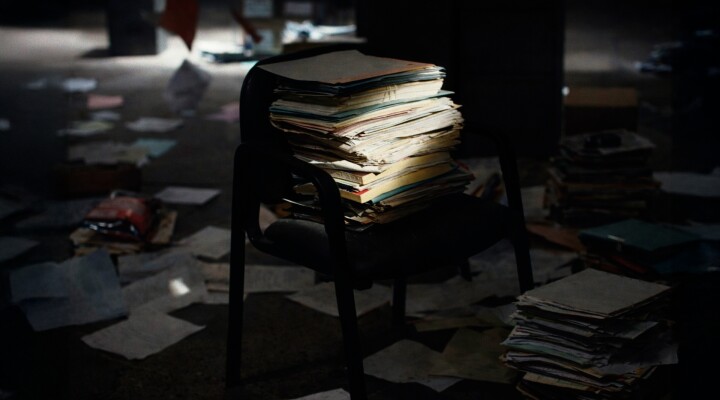Iraq: Landmines and explosive remnants cast long shadow amid recovery efforts
Landmines and explosive remnants of war (ERW) contaminate an estimated 2,100 km² of land in Iraq—equal to 300,000 football fields. These deadly hazards pose an ongoing threat to civilians, hindering the return of displaced families, restricting access to farmland, and slowing down reconstruction efforts.
Ahead of the International Day of Mine Awareness and Assistance (4 April), the International Committee of the Red Cross (ICRC) reiterates its call for stronger efforts to reduce the widespread contamination of landmines and ERWs in Iraq.
These deadly remnants continue to claim lives and cause devastating injuries. Between 2023 and 2024, a total of 78 victims were reported as either killed or injured. In early 2025, three students tragically lost their lives to explosive remnants of war in Basra’s Abu Khaseib district.
Children remain the most vulnerable. Among them is Hussein, an 11-year-old boy from Diwaniyah province who was injured in 2021. “While playing outside with my friends—there were five of us—we found a ‘war remnant’ object. We burned it and played with it, unaware of the danger. Suddenly, it exploded, injuring all of us. Mine was the worst—I lost my leg above the knee,” he said.
Another victim, further north, in the war-torn province of Nineveh, Sundus's life changed forever during the tumultuous years of conflict from 2014 to 2017. In an attempt to flee to safety with her family, she unknowingly stepped on a mine, losing both her legs in the ensuing explosion.
These stories are just a few among thousands, highlighting the devastating impact of contamination across Iraq. Each injury or loss of life is a stark reminder that war does not end when the fighting stops—it leaves behind a deadly legacy that lasts for generations.
The threat extends beyond civilians to mine clearance teams, who face life-threatening risks in their mission to remove these deadly hazards. Noora Murad, a demining specialist in Sinjar, Nineveh Governorate, shares her daily fears: "The situation is not easy. Every time I leave for work, my daughter cries." She went on saying, “We feel happy when we clear a site that later becomes a school or when we see land we cleared two or three years ago being cultivated again.”
The ICRC continues to conduct risk awareness and safe behavior training to people living in highly contaminated areas, equipping them with the knowledge to protect themselves from these hidden dangers. In 2024 alone, nearly 6,000 individuals in at-risk or affected communities benefited from face-to-face awareness sessions.
In parallel, the ICRC also continues to work with specialized partners in demining operations. In 2024, 2440 pieces of humanitarian mine action equipment and materials were donated to the Iraqi national mine action agencies and civil defense to support their efforts.
Beyond risk education and demining support, the ICRC remains committed to assisting victims of explosive remnants of war, and it works closely with national authorities in strengthening the national legal framework relating to anti-personnel mines and cluster munitions in line with Iraq’s international obligations.
"Collective action is needed to prevent further loss of life and alleviate suffering. Therefore, we collaborate closely with the national authorities and Iraqi Red Crescent Society” said Ikhtiyar Aslanov, Head of the ICRC’s delegation in Iraq. “Our paramount goal is to support affected communities and help create a safer environment for children and families in Iraq," he added.
While progress is being made to mitigate the risks posed by landmines and ERW, the path toward a mine-free Iraq remains long. The ICRC calls on all relevant stakeholders to intensify efforts to create a safer environment for affected communities, provide sustainable support for victims, and work toward eliminating this deadly legacy that continues to obstruct recovery and development in Iraq.
For more information, please contact:
Hiba Adnan (Spokesperson) Email: hiadnan@icrc.org Mobile: +9647901916927
Avin Yassin (Kurdish): Email: avyassin@icrc.org Mobile: +964 771 994 5066
To learn more about the ICRC’s activities in Iraq:
Visit our website and follow us on Facebook, Instagram and Twitter
Note to editors:
ICRC in Iraq:
The ICRC has been working in Iraq since 1980, and its main activities are visiting detainees, restoring family links, and clarifying the fate of the missing persons, as well as disseminating and promoting international humanitarian law among all sectors of Iraqi society. In addition to working to mitigate the effects of climate change and help communities adapt in the long term through the rehabilitation of water treatment plants, drinking water pumps, water networks and irrigation systems. It also provides support to hundreds of affected families by providing cash assistance to help them restore their livelihoods in close cooperation with the Iraqi National Red Crescent Society.
ICRC 2024 Facts & Figures:
- 14,639 women, men, and children benefited from physical rehabilitation services at the ICRC-supported governmental centres or at Erbil Physical Rehabilitation Centre (PRC).
- A total of 722 students took part in these awareness sessions in one of Iraq's southern governorates.
- 8,990 people living in weapon-contaminated areas were sensitized about risks and adopted safer practices to reduce vulnerability.
- Nearly 6,000 individuals in at-risk or affected communities were supported with face-to-face risk awareness and safe behaviour sessions.
- Over 230 ICRC and RC/RC Movement staff members were trained in the field of weapon contamination hazards.
- 2440 pieces of humanitarian mine action equipment and materials were donated to the Iraqi national mine action agencies and civil defense to support their efforts.
Loglist
Location : IRAQ - Erbil, Nineveh, Salah-Aladdin
Length : 25:33 mins
Producer : Mike Khalaf/ICRC
Cameraman : Mike Khalaf/ICRC
Production languages : Arabic / Kurdish
Filming dates : March, 2025
Copyright : ICRC access all
Loglist
|
Time Code |
Name of interviewee, Location |
|
Location: Shaqlawa, Erbil, Iraq |
|
|
00:00 – 01:28
|
General shots of deminer working in the minefield |
|
Interview1: Bestun Farhad – Deminer |
|
|
01:28 – 01:34 01:34 – 01:41 01:41 – 01:45 01:25 – 01:51 01:51 – 01:55 01:55 – 02:01 02:01 – 02:06 02:06 – 02:16 02:16 – 02:20 02:20 – 02:30 02:30 - 02:36 02:36 – 02:43 02:43 – 02:50 02:50 – 02:56 02:56 – 03:05 03:05 – 03:09 03:09 – 03:15 03:15 – 03:19 03:19 – 03:22 03:22 – 03:30 |
I am Bestun Farhad, a staff member of Iraqi Kurdistan Mine Action Agency, and also a member of team no. five which covers Shaqlawa district. I have been working in this field since 2008, it’s been almost 18 years since I have joined this field. It’s a dangerous type of work, yet a sacred one because there are many sites across the region that contain landmines and explosive ordnance and they need to be safe through clearance And this surely needs local employees. As a matter of fact, we had international employees before. Nowadays, the agency employs only local staff and they work well. I chose this profession, despite it being a dangerous one. Nonetheless, it is a humanitarian activity There are many minefields across this country which require clearance. And people will make use of these lands upon clearance. as deminers, we face multiple risks on a daily basis. For example, risks include those associated with landmines and weapons, transportation, rains, thunder, and natural predators, such as snakes and scorpions. Thus, it is certainly a hard and risky job, but at the same time is a sacred and beautiful job. It is a humanitarian one. Since I started working in this agency, the main types of mines I could detect are VS, TS and Valmara There are other types of landmines scattered across different areas. However, the said mines can be mainly found where we currently work together with Varsile type. Valmara is a fragmentation mine, the victim dies immediately when they hit it. However, the VS, TS and Varsile types are designed to maim rather than to kill and cause victims to lose their legs or arms and thus become incapacitated My advice for those people who go for picnics, or visit fields that may contain landmines is that whenever they see an unusual object, or a landmine warning signs, they should not come close because they are dangerous and put lives at risk. If they see a landmine, or a suspicious object, like mines or weapons, they can inform the Mine Action Agency. Thus, the closest Mine Action Agency’s centre will be notified, and dispatch a team to remove such objects. |
|
03:30 – 04:32 |
General shots for the deminer, mine, War remnants, on route to the minefield |
|
Interview 2: Yousif Saleem - Weapon contamination officer of ICRC. |
|
|
04:32 – 04:38 04:38 – 04:41 04:41 – 04:47 04:47 – 04:53 04:53 – 05:02 05:02 – 05:15 05:15 – 05:23 05:23 – 05:31 05:31 – 05:42 05:42 – 06:00 06:00 – 06:14 06:14 – 06:19 06:19 – 06:24 06:24 – 06:32 06:32 – 06:40 06:40 – 06:49 06:49 – 06:58 06:58 – 07:02 07:02 – 07:11 07:11 – 07:23 07:23 – 07-30 07:30 – 07:49 07:49 – 07:56 |
The International Committee of the Red Cross (ICRC) has many departments whose work is related to humanitarian action. One of those departments is weapon contamination. It carries out activities across the country, and in Kurdistan Region in particular, including Erbil. Our activities are aimed at raising community awareness about risks associated with mines and explosive ordnance And at improving safety in community which lives in -an environment contaminated with landmines and explosive remnants of war. This can be achieved through erecting warning signs, which we regularly donate to IKMAA and to civil defense throughout Iraq. The goal being that contaminated places where no signs are installed are marked to help people avoid them. We also provide sensitization sessions about risks of explosive ordnance we donate brochures, warning signs and leaflets about safer behavior in a dangerous environment. We support mine action directorates through provision of warning signs, which will be installed in areas not marked yet and also donate demining equipment, such as metal detectors, visors, and shield vests, so that demining activities continue in Kurdistan Region and across the entire Iraq. The agencies we support are mostly governmental. Among them are four directorates affiliated to Iraq’s Kurdistan Region Mine Action Agency (IKMAA). In addition, support is given to civil defense directorates in mid-Euphrates and south of Iraq. We provide them with demining equipment and training courses as well. we enhance the capacity of their staff in this field, so that demining process become faster and more effective, especially along border areas, villages and areas that are distant from cities. Our priority is working in areas that are crowded and areas that are close to schools. We also provide humanitarian services. We focus on these areas more and lend a helping hand to the governmental agencies as to improve the delivery of these activities. The weapon contamination department of ICRC performs different activities, including: organizing plays for school students, awareness sessions, TV programs and pass on messages through art. I am Yousif Saleem Mohammed, a weapon contamination officer of ICRC. |
|
Location: Amedi, Duhok, Iraq |
|
|
07:56 – 08:32 |
General shot for Amedi area, ICRC on route, general, close shot to Najeeb |
|
Interview 3: Najeeb Amer - mine victim |
|
|
08:32 – 08:41 08:41 – 08:46 08:46 – 08:53 08:53 – 08:58 08:58 – 09:03 09:03 – 09:11 09:11 – 09:21 09:21 – 09:30 09:30 – 09:42 09:42 – 09:49 09:49 – 09:53 09:53 – 09:55 09:55 – 10:04 10:04 – 10:08 |
My name is Najeeb Amer Othman, I am from Marebka village, which is adjacent to the centre of Amedi and I am married. This incident happened on 28 April 2023, I was employed by Kurdistan Regional Government. I was dismissed from my job following the incident. I used to go to my work, and after dismissal, I had to look for another job. at that time, I used to cover all family expenses and we faced no problems. I cannot work anymore after after the incident, and I do not have another source of income to support my family. praise be to Allah, since he is the one who aided me. I was out with my friends on a picnic. while walking, one of my friends and I went nearly 100 meters far from the shoulder of the road, I am not entirely sure, but I think my friend accidently stepped on that object and it exploded on us. My friend died (martyred) and I unfortunately lost my eyesight. Regarding the financial situation after this incident, I am relying on on my father and brothers to provide for family expenses, and I cannot simply secure any job. A psychiatrist talked to me at the hospital about the incident. He said " how do you feel about seeing your daughter?". she was three months old at that time. The last time I saw her, she was three months old. when we talk about my daughter, it's true that one should accept what Allah has preordained however it’s my dream to see her one day. |
|
10:08 – 10:24 |
Close, medium shots for Najeeb |
|
Location: Tikrit, Salah-Aladdin, Iraq |
|
|
10:24 – 11:33 |
War remnants close to villagers and shepherds, civil defence team removes war remnants
|
|
Location: Mosul, Nineveh, Iraq |
|
|
11:33 – 12:38 |
General shots for the village, demolished houses, damaged schools, residents, students |
|
Interview 4: Hussien Ali – Mukhtar of Hassan Shami Village |
|
|
12:28 – 12:41 12:42 – 12:47 12:48 – 12:53 12:53 – 12:59 12:59 – 13:02 13:02 – 13:07 13:07 – 13:12 13:12 – 13:16 13:16 – 13:22 13:22 – 13:28 13:28 – 13:38 13:39 – 13:44 13:44 – 13:46 13:47 – 13:54 13:54 – 14:01 14:01 – 14:08 14:08 – 14:15 14:15 – 14:18 14:18 – 14:27 14:27 – 14:32 14:33 – 14:37 14:37 – 14:42 14:42 – 14:45 |
I am Hussien Ali Khalaf, and I am the Mukhtar of Hassan Shami Village People had lived in this village since as early as 1810 Before the conflict, the residents of the village have lived peacefully with each other. Due to military operations,people were displaced from their homes. Some families relocated to Kurdistan Region while other families moved to Mosul city. Following liberation of Mosul city, we stayed there for almost two and a half years. And afterwards, we were moved to displacement camps. After living in camps for quite some time, the displaced families returned to the village. According to a decision issued by the then-President of Kurdistan Region, Masoud Barazani, the residents of Arab villages were allowed to return. 273 families, whether residing inside the camps or outside within Kurdistan Region, could return to the village We are facing difficulties because we returned and found destroyed houses and are still unable to uncover remnants beneath the ruins. The main issue could be the presence of explosive remnants of war inside the severely damaged houses. We know nothing about them. The families have returned and currently they have access to water and electricity services, praise be to Allah. The main issue we face is the presence of explosive remnants of war My nephew who is almost 8 years old was carrying an IED and he knew nothing about it When we saw him, we immediately asked him to drop it, and afterwards informed the security forces in the village. Military engineering team showed up and removed it. Also, we found unexploded projectile in the vicinity of football pitch and a house. The children were inadvertently playing with it. We informed the security forces in the village. Military engineering team came and removed it. Elderly people are aware of explosive ordnance In comparison, children are not aware of risks associated with explosive ordnance Children are not familiar with strange objects, so they may carry them and would not know whether it is an IED or projectile. Elderly people are knowledgeable. While children are ignorant. |
|
14:45 – 15:43 |
Ibrahim with his children and grandchildren, close and medium shots |
|
Interview 5: Ibrahim – Father of mine victim |
|
|
15:43 – 15:49 15:51 – 15:57 15:57 – 16:05 16:06 – 16:14 16:15 – 16:19 16:19 – 16:24 16:25 – 16:31 16:31 – 16-37 16:38 – 16-45 16-49 – 16:52 16:52 – 16:57 16:57 – 17:00 17:00 – 17:09 17:09 – 17:15 17:15 – 17:20 17:20 -17:27 17:27 – 17:35 17:35 – 17:38 17:38 – 17:41 17:41 – 17:48 17:48 – 17:52 17:52 – 18:04 18:04 – 18:06 18:06 – 18:14 18:14 – 18:20 18:20 – 18:24 18:24 – 18:31 18:31 – 18:37 18:37 – 18:46 18:46 – 18:51 18:51 – 18:56 |
I am Ibrahim Muhammed Aqab Al-Salih. My family consists of around thirty people. We have lived here since I was born (that is, before 1960s). We work in sheep grazing and trading. We pay tremendous efforts to make a living of it. We thank Allah for all of his blessings. Al-Muhallabiya subdistrict, being our neighborhood, comprises approximately 40 to 45 villages. People are still living there today. When the conflict broke out, many incidents occurred. As a result, landmines are scattered everywhere and can be found across the area. My grandson was a 7-year-old schoolboy in first grade and lived with me here. But during the mid-year school break, he went to his parents to herb sheep. On the day of his departure, he woke up at 9 am and went to see his brothers. He walked alone for about one to one and a half kilometers from the house. While walking along the road between the house and the pasture, Suddenly, his family heard a sound of explosion of a bomb. When they reached him, he was lying just 10 meters away from the blast site, struggling to take his last breaths. He passed away en route to the local primary health care center. It was not easy to get over. It touched all of us deeply. We have lost many people, including elders, but we have never been affected like this before. Even you will feel the pain when you hear about his story. A child who was only 7 years old. A schoolboy who was enjoying his 15-day school break, was a victim of this tragic accident. Our whole family is heartbroken over his loss. In this village alone, four similar incidents happened, not to mention other incidents occurred in the surrounding areas of Halawa and Abu Shafqa. These incidents happened repeatedly. You cannot spot the explosive devices on the ground. Although the ground is flat and appears normal, explosives detonate all of a sudden. These devices are remnants of the well-known armed conflicts that recently took place. There are no warning signs. If such signs were installed, we could avoid walking through these areas. Absence of these signs means that explosives are hidden hazards for us, whether farmers or shepherds. If we could spot them, we would mark the areas or notify authorities. farmers and shepherds are most vulnerable to these hazardous devices, as they roam through wildlands unopposed. They earn a living from raising cattle in lands and not from working in towns or at streets. Those who work in the wildlands are most vulnerable to such threat. |
|
Location: Sinjar, Nineveh, Iraq |
|
|
18:56 – 19:38 |
On route to Tell Jdou' village, general shots for the minefield, mine, female deminers. |
|
Interview 6: Nisreen – Deminer |
|
|
19:38 – 19:46 19:46 – 19:55 19:55 – 20:03 02:03 – 20:10 20:10 – 20:13 20:13 -20:19 20:19 – 20:34 20:34 – 20:47 20:47 – 21:05 |
My name is Nisreen, and I am from Khanasur village of Sinjar district. I have been working for MAG for five years. I am working as a deminer and the main reason for choosing this profession is to clear my area of any explosive ordnance. Certainly, there is no difference. As a woman, I work with young men and I face no discrimination. I work well with them and encourage women not to see themselves as weak. Allowing yourself to feel weak is a bad choice. If a person, whether a male or female, possesses motivation, strength and intellect, then they can do anything they want. Personally speaking, I see no difference between them. Surely, it is a nice feeling when you achieve a lot through removal of a dangerous object or an explosive ordnance. It means that you saved lives and cleared a land. Hence, people can live safely in this land because of my achievement and my efforts. As a deminer, I may advise you against getting closer to any suspicious object. You need to notify civil defense, relevant authorities and concerned organizations and stay away from the object. |
|
21:05- 22:26 |
Nisreen general shots during work in the minefield |
|
Interview 7: Noora Murad – Deminer |
|
|
22:39 – 22:44 22:44 -22:51 22:51 – 22:57 22:57 – 23:08 23:08 – 23:18 23:18 – 23:27 23:27 – 23:33 23:33 – 23:37 23:37 – 23:43 23:43 -23:48 23:48 – 24:00 24:00 – 24:08 24:08 – 24:16 23:16 – 24:23 24:23 – 24:32 24:32 – 24:41 24:41 – 24:49 |
My name is Noora Murad and I am from Siba Shaikh Khidir Village of Sinjar District. I have been working as a deminer for MAG since 2018. I chose this profession since our areas are contaminated with IEDs and our houses are severely damaged. We encountered many challenges as part of our work. Landmines exploded as our shepherds were passing by, and we were unable to evacuate the injured shepherds safely from the minefield. Frankly speaking, this job is quite challenging. We accustomed to wake up at 5:30 am, leave home at 7:00 am, and return at 3:00 pm. Despite the difficulties, we perform this work to clear our areas of explosive ordnance. We simply want the returnees or those about to return to see their land free of landmines. We feel delighted when we clear a site, and it is then transformed into a school, Or when we see a land, which was cleared two or three years ago, is now cultivated and planted again. across villages, we see houses are being built on lands we cleared earlier. Many areas are still contaminated and need clearance. We would like to carry on until all areas are fully cleared. I recognize the importance of this job, and I am proud to be a part of it. In the past, demining was prohibited for women. But nowadays, women have the opportunity to work in this field. I encourage women not to be afraid of this job, as it is no longer male-dominated. Women are also brave. we can simply do this work. It is great one because it allows us to clear our areas, elate families, and bring life back to our lands. My family takes care of my daughters while I’m at work. They look after my elder daughter, while my husband cares for the younger one. The situation is not easy because every time I leave my home, my daughter cries a lot, and I have no other choice. |
|
24:49- 25:33 |
Noora general shots during work in the minefield. |



